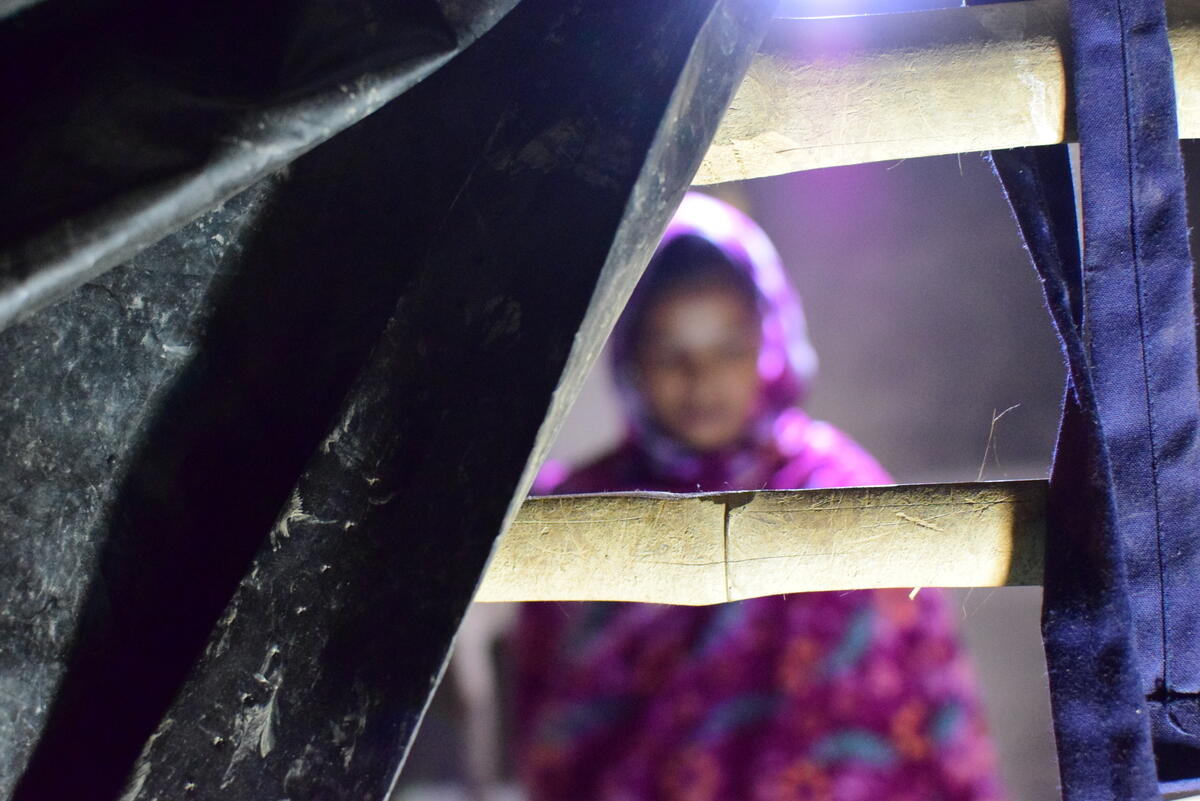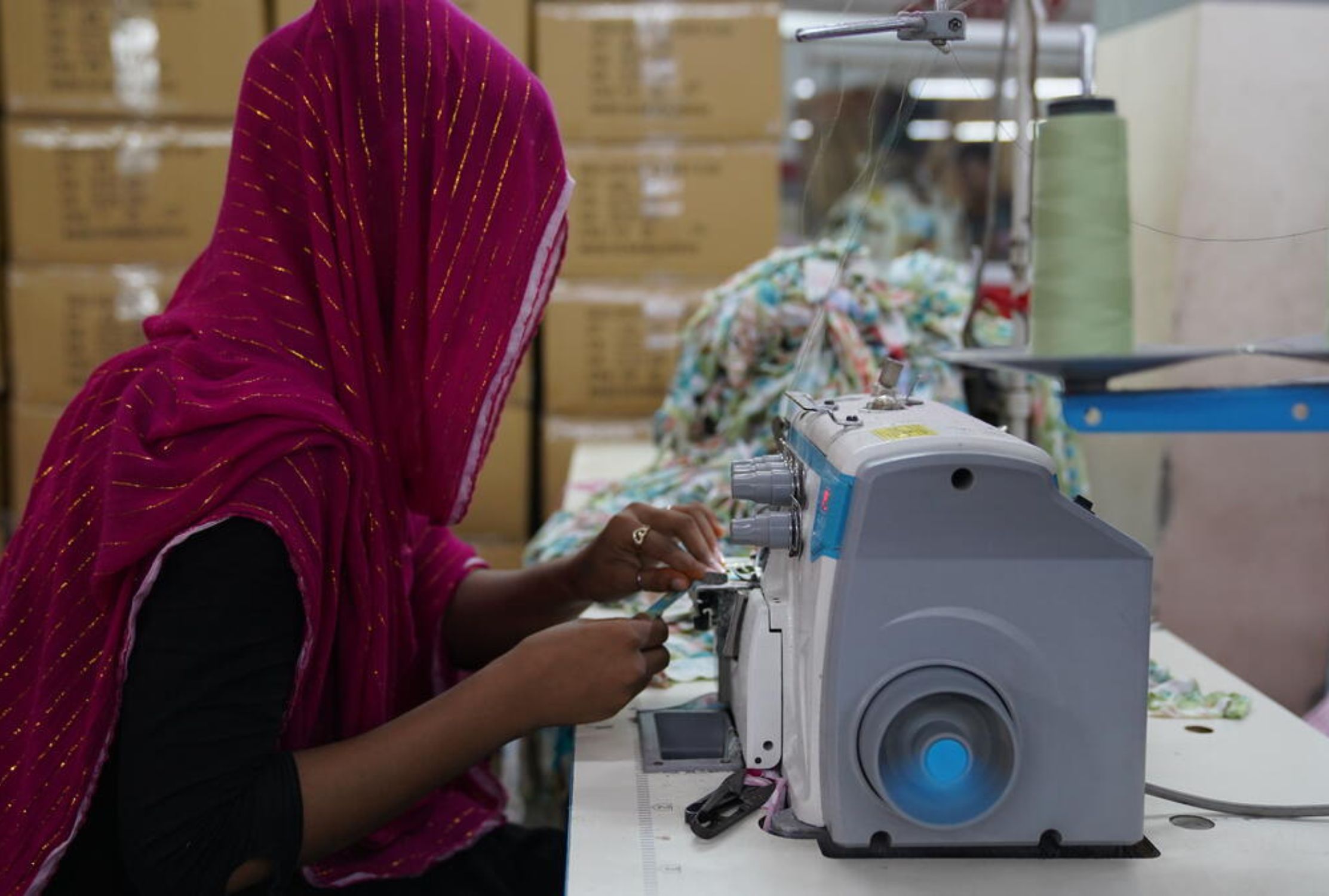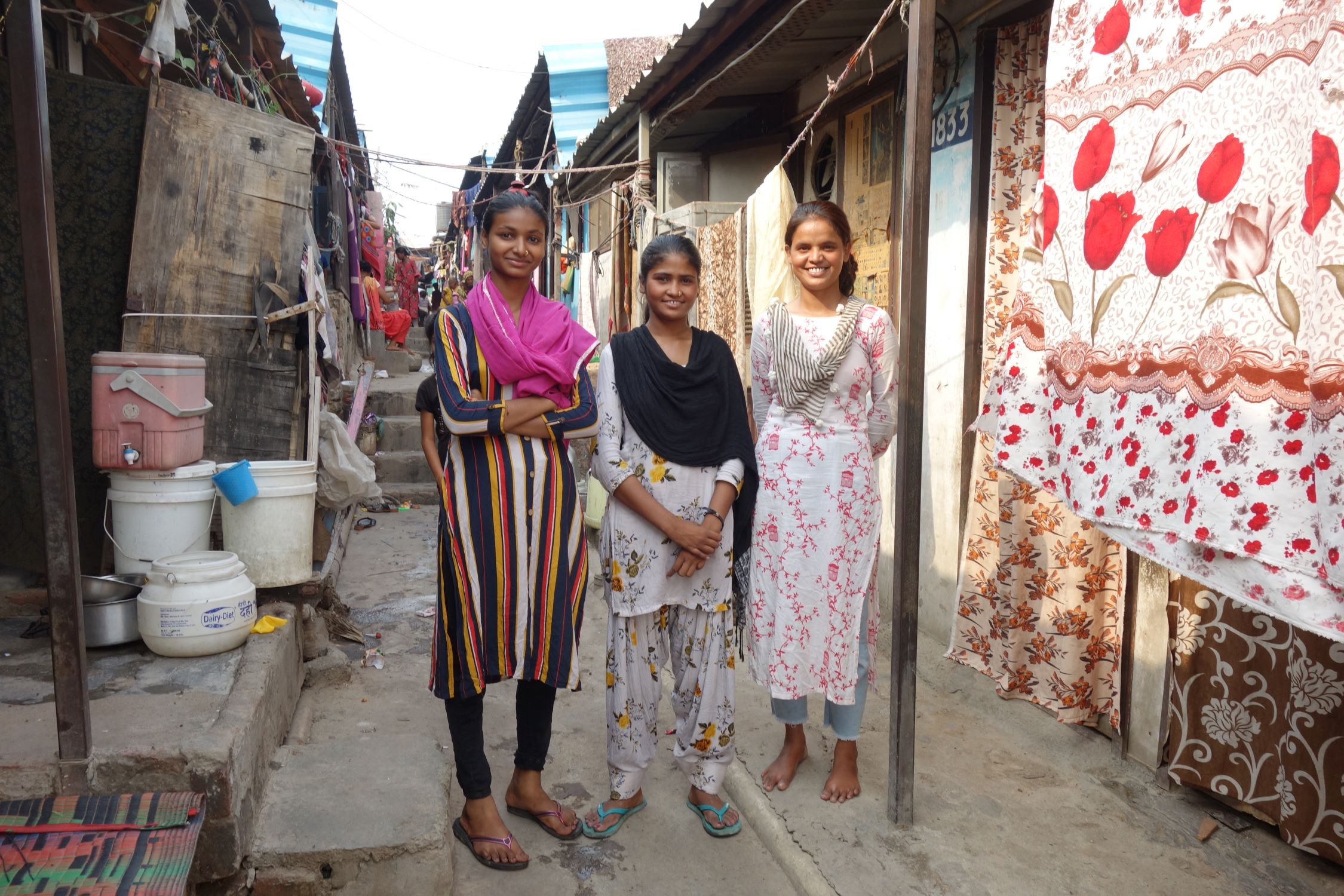
International Youth Day 2022
Three rag pickers are changing their lives through education
As we celebrate International Youth Day (12 August) three teenagers from India are an inspiration to all who hear their stories.
Tulsi, Pooja, and Poonam (pictured above in that order from left to right) live in Delhi, in an area unseen and unrecognised in the capital of India. They are among the 3,000 families who relocated to a transit camp, after the state government demolished the slums they called home. (For more information on this see the end of the article).
These three girls are rag pickers and their future looked bleak. But thanks to their determination, and a little help from World Vision, they are dreaming of a better future. And not just dreaming. They’re working towards it.
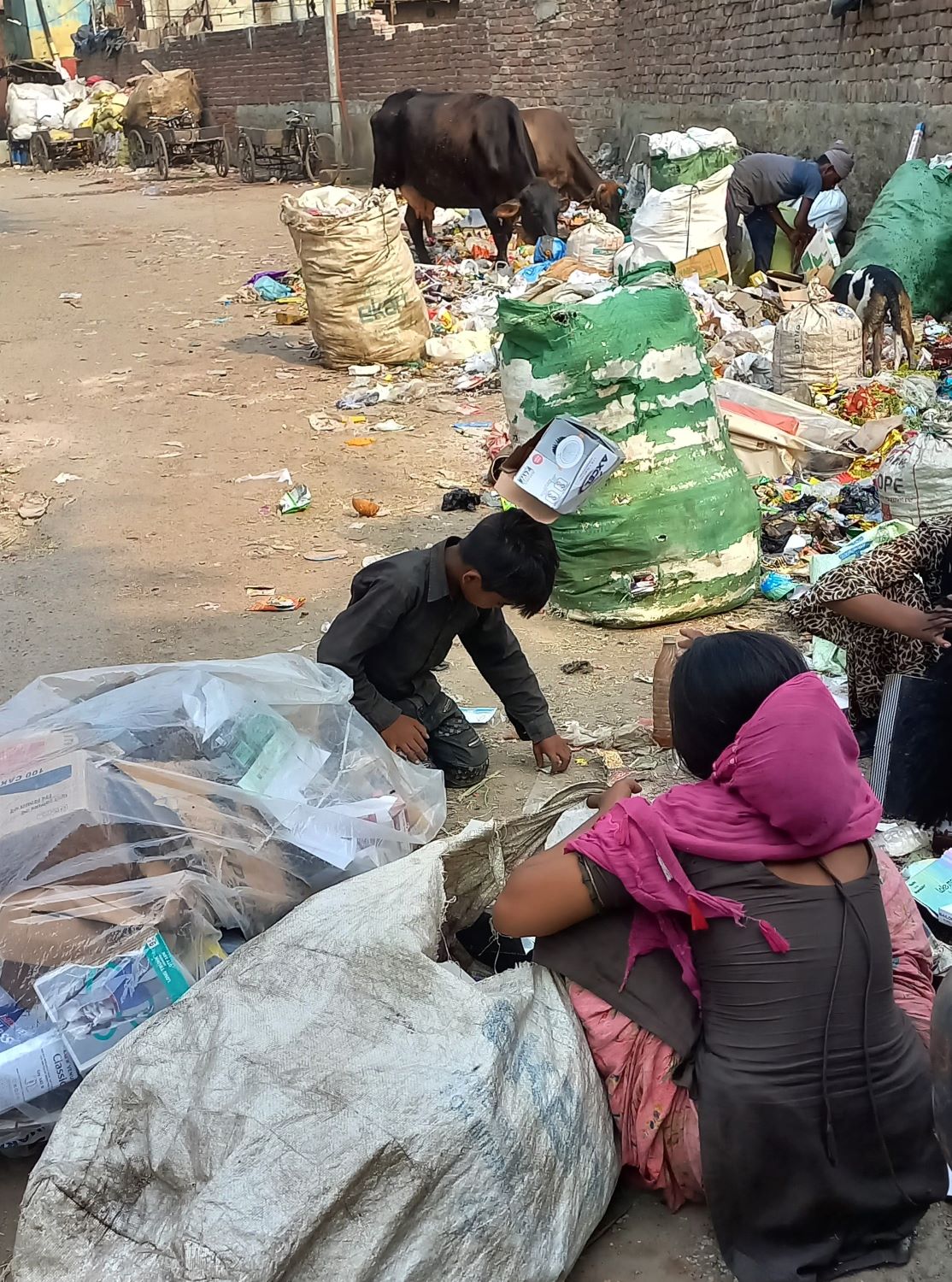
What is a rag picker?
A rag picker is someone who makes a living by rummaging through rubbish in the streets to collect material. Scraps of cloth and paper can be sold for further use.
Not safe
Tulsi,18, is the eldest of five siblings. All her siblings are rag pickers. From a young age, she has personally seen and experienced how difficult, and unsafe, life can be on the streets for children, especially girls. She says, “We always go in a group of five or six for rag picking as early as 3am in the morning and come back by 10am. It is not safe to go alone and there have been many cases of harassment; even sexual abuse. A month ago, I had to fight off an elderly man who tried to harass me as I was standing alone on the roadside waiting for my mother.”
Tulsi and her friends Poonam and Pooja are determined to have an education and a better life. In fact, many people have been amazed to see the resolve of the three girls, who became the first young people from their rag picking community ever to take the class ten exam, through the National Institute of Open Schooling (NIOS).
Their background did not deter them from dreaming big - and their achievement has set an example to other girls in the community.
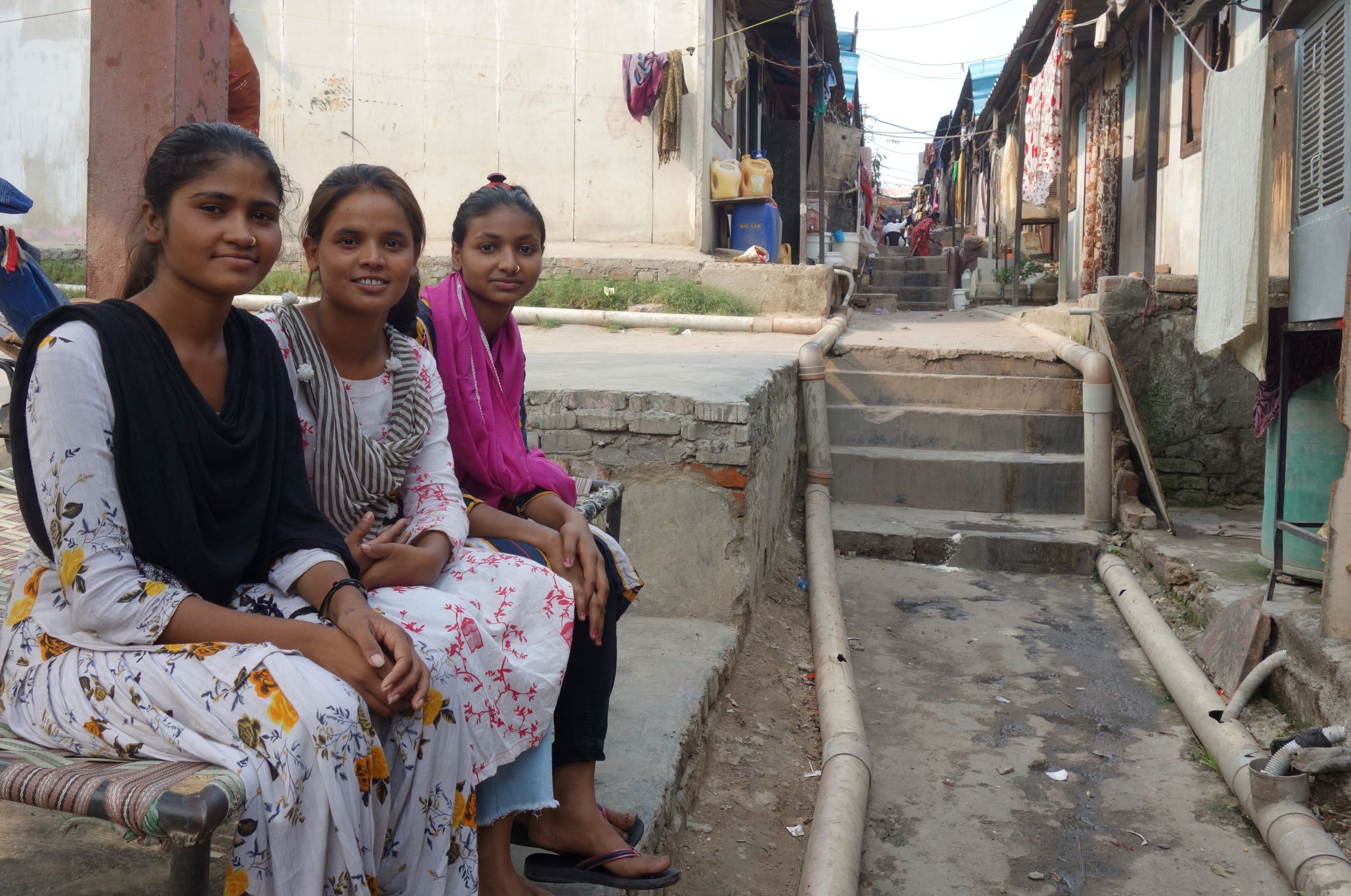
Exciting and new
World Vision India has been working with this community for over a decade, back when they were living in the slums. Poonam, now 19, recalls how it started for her, “I was first introduced to books when I attended a learning centre run by World Vision India, which was very exciting and new for me. Later they helped me enrol in a government school. Initially it was very challenging to go to school as my parents were not supportive and we were all rag picking to earn a living. But, with constant support and counselling from World Vision, things started changing and now we are much more aware of many things, including the importance of education.”
So many challenges just to stay in school
She was enrolled in a government school near her old home in Shadipur, but after the demolition and move, the distance was a challenge. However, Poonam was determined to continue, until illness and the distance took its toll and she finally had to drop out of school.
But she wasn’t giving up. In 2020, she enrolled with the National Institute of Open Schooling. But then came another setback: Covid and lockdowns.
Constant support
In 2021, she was re-admitted. This time, with the constant support of World Vision India’s volunteers, Poonam continued to regularly attend the tuition centre, run by World Vision, and studied online.
“Me, Tulsi and Pooja came regularly to the tuition centre and used Madam Gopi’s mobile to connect with the tuition teacher and study online. That is how we prepared for the exam during Covid. We did not have mobiles, so it was difficult to study at home,” said Poonam.
Gopi, who is a World Vision India volunteer, says, “We encouraged them to continue their studies and tried our best to support them in every possible way, from filling the exam forms, paying the fees, providing books and even paying for their travel to the exam centres. Sometimes one gives up when you don’t have any support system around you.”
Poonam added, “I used to go for rag picking almost every day and even begging in the street. Now I am happy that I am getting a chance to study and later try to get a decent job. I want to motivate other children also to study and not give up hope.”
She also has more immediate plans. “I am also looking forward to beautician training, with the support of World Vision India, and starting a small business to earn money. If I earn money through it, I don’t have to go back to rag picking anymore and [can] continue my study as well.”
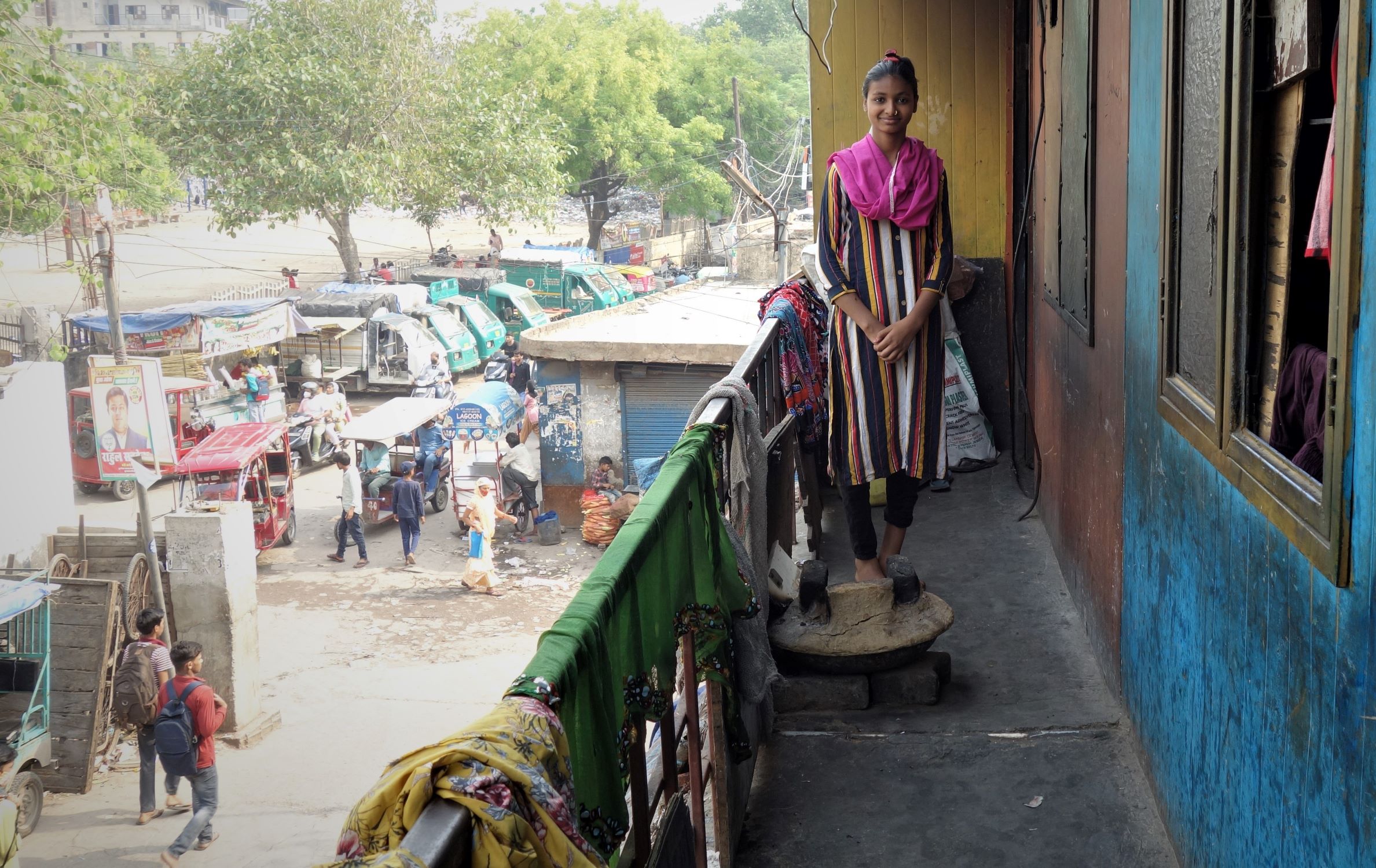
Childhood dream
Tulsi adds that she also plans to join Poonam – and Pooja - in this business. “We are confident that if we start a beauty parlour business, we will earn good amount of money. I want to become a police officer – that’s been my dream since childhood - however, in order to continue [to] study to achieve that, I need to earn money somehow to support my family and myself. We live hand to mouth through rag picking, begging and selling nimbu mirchi (lemon and chilli charms).
“I want to earn enough so I can stop my mother from rag picking for her safety,” says Tulsi. “Now that I have taken my exam I am more confident and will continue to study so I can achieve my dream.”
We are now doing much better
Pooja, 18, adds, “I will join Poonam and Tulsi in beautician training so that we can all work together and earn money.”
Whenever her family needs it, Pooja goes rag picking two or three times a week, along with her siblings. At other times she helps in household chores and enjoys her time at the tuition centre, which, she says, is like a resting place for children, explaining they can even sleep under the fan on hot days and enjoy snacks.
Like most families in the transit camp, Pooja lives in a 12 x 8 feet size room - with 8-10 family members. “At night the girls sleep inside the room and boys sleep outside. We use the public toilets constructed in the transit camp, which are always crowded. Our community has come a long way and, with continuous awareness given by World Vision India, we are now doing much better and try to keep ourselves clean and bathe often. Earlier we used to take [a] bath only once a week, and did not care much about hygiene since most of us are rag picking and always handling dirty stuffs,” she says.
Pooja, who wants to become a teacher, has helped four of her elder brother’s children enrol in school.
Background: supporting children to enrol in school
In 2009, World Vision India started working among the children and their families who lived in the streets and under the flyovers in Moti Khan and Shadipur. Most children were rag picking, begging and selling nimbu mirchi (lemon and chilli charms). Over eight years, the organisation supported around 900 children to enrol in school.
After the slum demolition in the Shadipur area, World Vision India continued working with those families who moved to the transit camp.
Before this slum demolition, around 150 children were regularly going to school. After the demolition, most families moved to the transit camp in 2017-18, and many children had to drop out of school due to distance.
From 2020, schools were closed due to Covid lockdowns, which created a big learning gap for the children (almost five years for some).
At present around 170 children are attending the tuition centre.


